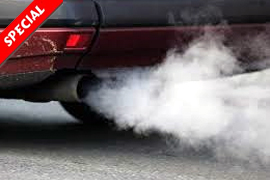<p>A 2013 scientific assessment of black carbon emissions and impacts found that black carbon is second to carbon dioxide in terms of its climate forcing. High concentrations of black carbon in the atmosphere can change precipitation patterns and reduce the amount of radiation that reaches the Earth's surface, which affects local agriculture. Acute and chronic exposures to particulate matter are associated with a range of diseases, including chronic bronchitis and asthma, as well as premature deaths from cardiopulmonary disease, lung cancer, and acute lower respiratory infections. The transportation sector accounted for approximately 19 percent of global black carbon emissions in the year 2000. This report aims to inform efforts to control black carbon emissions from diesel-based transportation in developing countries. It presents a summary of emissions control approaches from developed countries, while recognizing that developing countries face a number of on-the-ground implementation challenges. A cost-benefit framework for economic analysis of diesel black carbon emissions control transport projects is also presented that factors in both climate and health benefits.</p>



